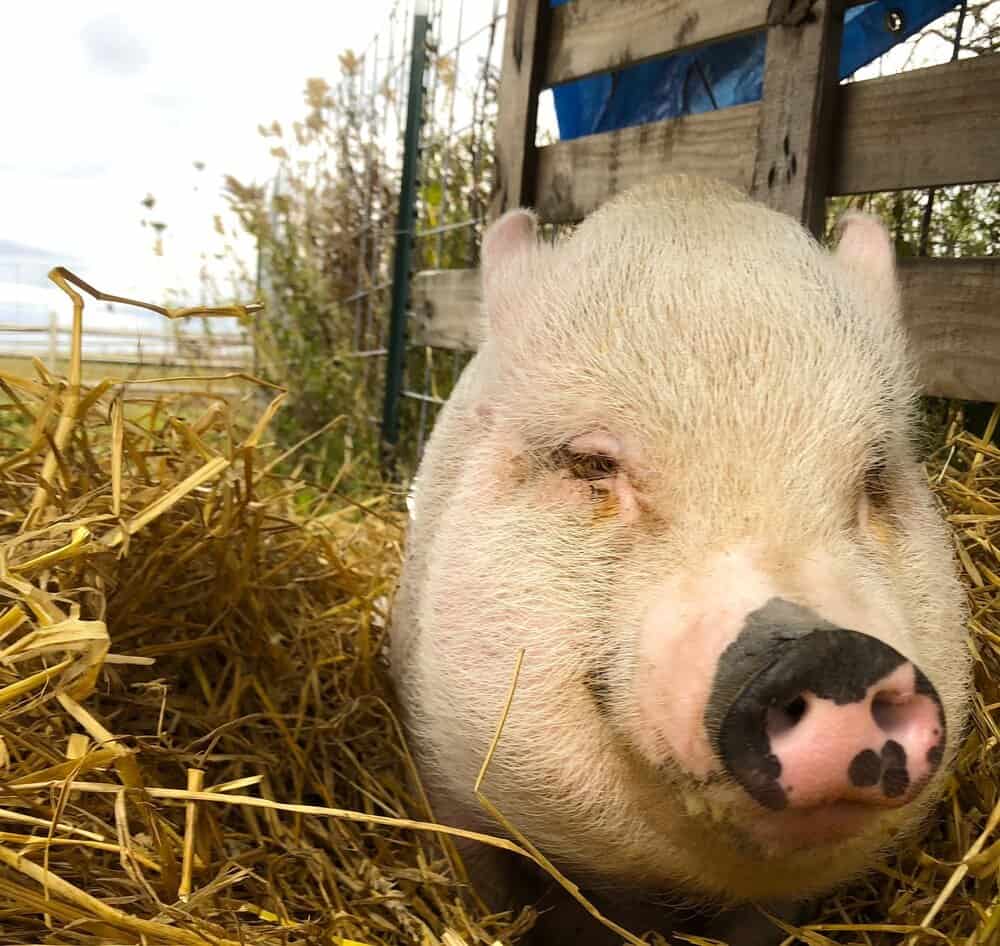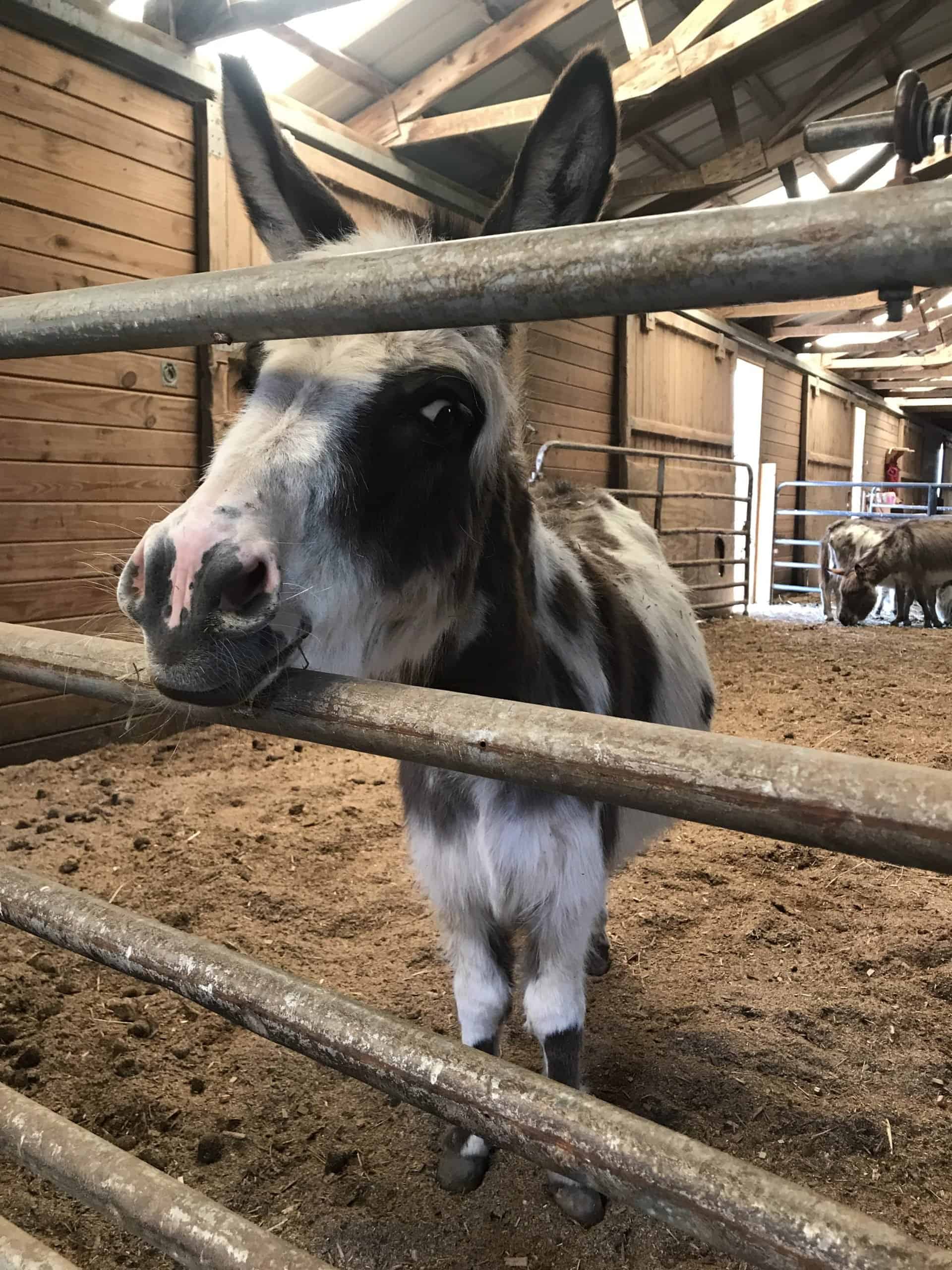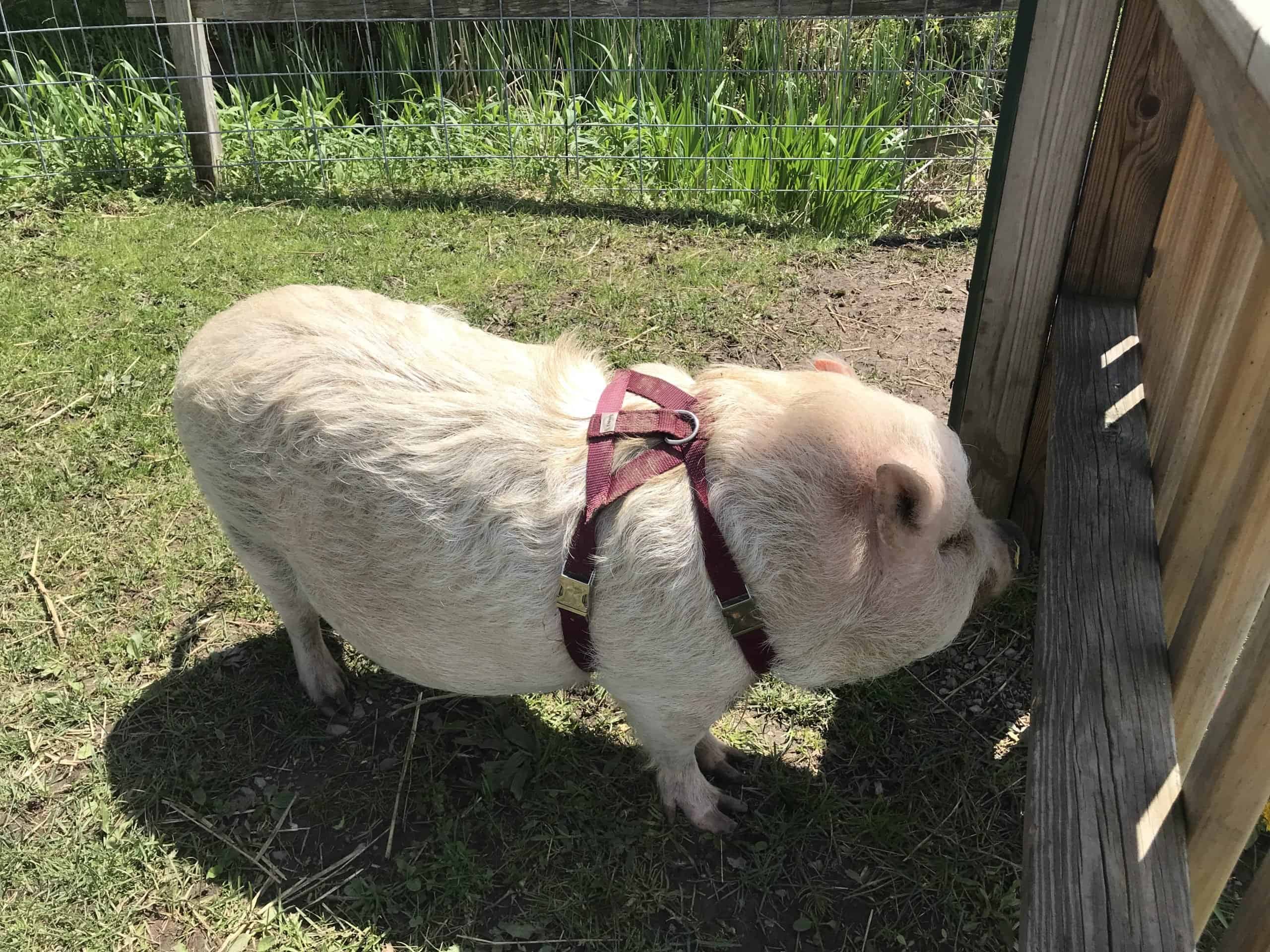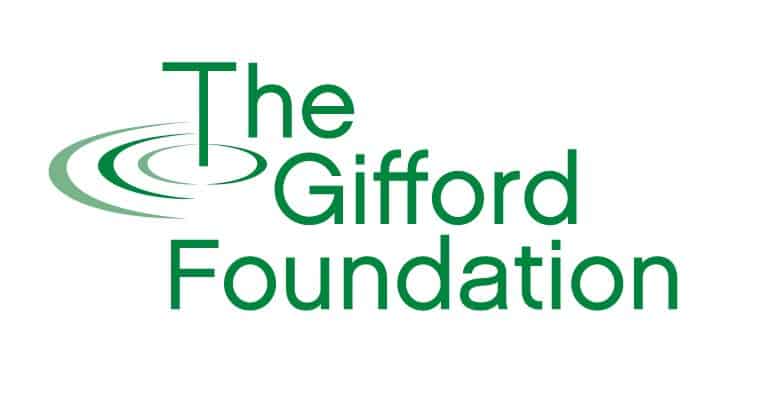The Haven at Skanda
We sat down with Ellen Beckerman – Executive Director of The Haven at Skanda to learn about how this innovative animal sanctuary is expanding its services and reaching more people in the face of a global pandemic. Please note that this interview has been edited for content and length.
Published: June 9th, 2020
Thank you so much for making time for this interview, Ellen! For people who are unfamiliar, what is The Haven at Skanda? How would you describe its impact and purpose within the community it serves?
EB: Originally Skanda was a horse farm and education center that was focused on teaching people how to have a very respectful partnership with their horses. Then, in 2013, we had this unexpected call from the CNYSPCA that they had found these 14 wild, starving ponies that were in urgent need of rescue or they would not survive and we ended up taking them here, and that initial response to an urgent community need is how we’ve proceeded from that point.

Eve is one of many rescue pigs who recently arrived at The Haven at Skanda.
We didn’t expect it, but volunteers came to help. They started to pull us aside and say things like ‘I have really crippling anxiety, I really prefer not to leave my house. I’ve come here to help take care of the ponies. I have to tell you when I’m sitting with the ponies – I’ve felt the best I’ve felt in ten years. I don’t know what this is but I feel amazing, can I keep coming back?’
We recognized early that the Haven at Skanda would not just be about taking care of animals who really severely needed help, but also giving people a chance to be around the animals and learn from them.
How did the mission to save farm animals evolve into being a resource for children?
EB: Kids understand animals on a level that adults – most adults – sort of lose; that primary, open, trusting connection with animals that we have, as we age that may go away. But kids bond with animals instantly and they just get each other completely. So because a lot of us had backgrounds teaching or supporting kids in other ways it was natural for us to start a very small kid’s summer program. At the same time, the Madison County Youth Bureau had a wonderful mentorship/leadership program for kids who needed a little extra support. They started to come really early on to the Haven to volunteer. We would have four – five – six – seven kids come once or twice a week to help us take care of the animals. And they would also get to spend bonding time with the animals where they really got a lot of joy and love and support. That was quite mutual – the animals really loved that.
We came up with a plan together for a summer program that would be specifically designed to support kids with significant behavioral and emotional issues. These are kids who are getting sent to the principal’s office regularly, and are struggling to handle their emotions without disrupting class. So we started that and the Youth Bureau gave us our first grant to get that program off the ground.
It sounds like you are able to take the shared trauma that the children and the animals have and leverage it into something positive, could you tell me more about that?
EB: It’s very easy when you talk to kids to say ‘these animals are rescued, what does that really mean? They’ve been yelled at, maybe they’ve been hit, maybe when they were hungry they didn’t get food. How do you think we should behave around the animals to make sure that at Skanda, they always feel safe and protected and loved and so they are never stressed out by any of our behavior?’ And the kids are always brilliant about coming up with a great list: ‘We want to walk – never run.’ ‘We want to speak softly.’ ‘We never want to fight with each other.’ They come up with a real common sense good list of how we are going to all behave.
But these are kids with serious trauma and they don’t have the skills to stick to that list. They have impulse control issues, they have a very low tolerance for frustration, they have emotional regulation issues, so we teach them mindfulness, peaceful conflict resolution, leadership, a lot of teamwork, a lot of authentic praise and building them up and showing them how special and unique they are so that they can follow that list that they have created for themselves. They are learning all of these life skills that then help them stay focused in school, they do better at home. They have this motivation to do well at Skanda because they know they have to learn these skills to be around the animals. We started that program and it works incredibly well.
It’s wonderful to hear about this special dynamic between these children and the animals, could you give a specific example of a child who has really been reached by the mission of The Haven and what that looked like?

The Haven at Skanda is not only a sanctuary for animals, it is also a place where children and adult volunteers go to feel safe and heal.
EB: We had a kid about nine years old, a girl, who came and wasn’t socially interacting with the other kids. Very… I would say depressed. She didn’t have clothes that fit her, she didn’t have appropriate shoes. The household was clearly very, very stressful for her.
She bonded incredibly well with some of the goats and some of the mini donkeys, as soon as she came around the animals you could see her eyes light up. She started talking about them and she was clearly amazed that when she would go near them, the animals would sort of run to her and want to be around her. Sometimes the kids think the animals just want treats, and I’ll always say ‘We don’t give treats that way, so when you have an animal come to you, it’s because they see who you really are, and they love you, and they want to be with you because it’s fun to be with you.’ It was clear that no one had ever told her that before.
I remember asking her what she wanted to do when she grew up, and she kicked the dirt and sort of grumbled, there was no engagement in a future.
There was one moment with a mini donkey. We do most things as a group but then every kid gets a special, private experience with one of the animals. She was petting this mini donkey, and she kind of stopped and said, ‘I just felt something happen inside me and I don’t know what it is, but it felt really amazing and I don’t know what it is.’ We didn’t try to define it more.
She continued to just blossom and flourish and laugh more, and she became more central to the group, participating more in the social aspects with her peers. And the last day in the program she told us that when she grows up she knew what she was going to do. She was going to run her own animal sanctuary and she was going to be the boss. And that was just a very striking, wonderful, kind of statement because this was a girl that I had asked specifically in the beginning ‘what do you think you want to do when you grow up?’ Do you have any thoughts?’ And was like ‘I don’t even really understand the question. Why are you bothering me.’ And now she had this whole vision of what she was going to do, it was wonderful to see.
You were recently designated to be an emergency childcare site during COVID, which is such an exciting development. Tell us about that. How did it come to pass? What will it mean for your organization down the road and beyond the pandemic?
EB: Back in early March, we started to hear from families that they were really concerned about what their kids were going to do during the day. Ordinarily we don’t run daytime daycare programs for kids, so we contacted the NYS Office of Children and Family Services and asked them. They were amazing, they came right out within a few days and did a preliminary safety inspection just to make sure it would be safe for the kids, and they granted us temporary permission to run a drop-in childcare program while schools are closed during the crisis.

Very early on I’d let Megan at the Gifford Foundation know because we had been in communication for a while, and we were incredibly, wonderfully surprised that she popped a check over to us immediately to help us get that program off the ground. We had never had the experience of a foundation reaching out to us and giving us funding without us requesting it, and I want to point out how unusual that is and how grateful we are for that because that was critical to getting the emergency childcare off the ground.
We hear frequently about how the pandemic has affected urban communities, the economy, the healthcare industry, etc. What isn’t discussed so often is its impact on nonprofits. Can you talk about that?
EB: We’re lucky because animal sanctuaries are considered essential services, so we are up and operating. We have wonderful, incredible, dedicated volunteers who are coming, we have very strict biosecurity protocols in place, but our volunteers are still coming and in fact more volunteers are coming than normal because people want to be doing something to contribute – to feel useful – and Skanda is a very pleasant, wonderful place to be. But financially, it’s very, very challenging which makes the Gifford Foundation grant so much more valuable.
I know for The Haven at Skanda it’s been incredibly challenging because as we’ve increased programs, we also count on increased funding. But those donations we were counting on, significant amounts of money – have completely gone away. And we also have had to postpone some fundraising events that we were scheduled to do in the spring.
I also want to acknowledge the Gifford Foundation because we took a wonderful workshop over the winter about storytelling. They taught us how storytelling helps nonprofits communicate their mission in a way that really sticks in people’s minds, makes sense, and has a big impact.
Obviously we are all going through a crisis right now, but it seems that receiving the emergency designation as a result of the pandemic could be a silver lining in that it helps you reach more kids. Would you agree with that?
EB: We are reaching different kids, for sure. Our emergency childcare kids are coming from a much wider geographic area which is great. We also have another program for kids which is a girl’s leadership program. That was due to take place on the farm, but we are doing it virtually now. And we have another program for women who have survived domestic violence and are getting back on their feet, and that will be taking place virtually. Those virtual experiences do allow us to serve many, many more people than we had ever anticipated.
The other thing that’s happening that we feel is a good thing is that we are all needing to pause and consider our relationship to the world around us, to each other, to animals, to nature, and as we see the effects of people pulling back – some of the effects are not that bad. It’s worth thinking about how we all want to proceed once this is all over.
Subscribe to the Gifford Newsletter
Start enjoying our free quarterly publication today.


